Originally published on The Last American Vagabond
Perhaps one of the greatest obstacles to saving the beleaguered republic at this late stage of self-induced rot is a pervading belief among a large portion of the US citizenry that America itself were better off burnt to a crisp.
It isn’t just the Antifa or BLM rioters who lit cities on fire in 2019-2020 who believe this to be true, but the majority of the Democratic Party base itself has become drunk on the idea that the USA is a nation built entirely on slavery and systemic racism with no redeeming value. Eco-terrorists like Extinction Rebellion, and Deep Green Resistance justify the notion that declaring war on industrial civilization is a legitimate goal for the 21st century, while establishment technocrats race to “reset” civilization under Great Narratives more compatible for a depopulated, post-truth, bug eating world order to which the plebs of earth are expected to adapt.
The creation of this new generation of Americans yearning for the collapse of America did not emerge over night. With the murder of John F. Kennedy, educational systems were increasingly infused with a doctrine known as Critical Theory which posited that all of history had to be interpreted through a lens of “minority groups suppressed by systemic white males” with no room for nuance, free will, or actual causal ideas. Cybernetics and Systems Analysis became the conduits for this reform under the influence of the OECD’s Sir Alexander King (Lord President of the British Empire’s Scientific Secretariat, Director General of Scientific Affairs of the Organization for Economic Coordination and Development (OECD) and advisor to NATO.
Slowly, this perverse Marxist-Freudian worldview, sometimes dubbed “The Frankfurt School” took over the institutions of America during the Cold War, finding its loudest expression in something known as “The 1619 Project”.
What is the 1619 Project?
The New York Times’ 1619 Project which was unveiled in June 2019 by Nikole Hannah-Jones and attempts to smear the entirety of American history as simply a slave-promoting fraud from the moment the first slave arrived in Jonestown in 1619.
During its short existence, this “project” has quickly won over thousands of academics, and in spite of its proven fallacies (which it had to secretly cover up in Orwellian fashion), Jones was still awarded the Pulitzer Prize legitimizing the fraud in the minds of countless school administrators, policy-makers, and academics.
If one truly accepts the claims of the 1619 Project, which have been turned into a Pulitzer curriculum and already embedded in 4500 U.S. schools, then America’s dissolution would be no great loss to the world. In fact, one would have to conclude that since the republic was always built upon the defense of slavery (going so far as to paint the British Empire as an anti-slavery bastion which the founding fathers broke away from only due to their fear of having their slaves removed), then America was always… evil.
The First Paradox
If it were true that the creation of the American republic was just driven by a desire to protect the institution of slavery from the abolition-loving British then it should be asked: why did every American state shut down the African slave trade by 1793??”
Don’t believe me? Let the facts speak for themselves.
By 1784, six states in the new nation had voted to totally abolish slavery (Rhode Island in 1774, Vermont in 1777, Pennsylvania in 1780, Massachusetts in 1781, New Hampshire in 1783 and Connecticut in 1784), while the importation of all new slaves was banned by every other state by 1793. The important Northwest Ordinances passed in the 1787 Continental Congress ensured that no slavery would be permitted in the immense North West Territories (giving rise to the later addition of Ohio, Indiana, Illinois, Michigan and Wisconsin as free states). This agreement was established during the 1774 Continental Congress where a non-importation act was signed by all colonies stating: “That we will neither import, nor purchase any slave imported, after the first day of December next; after which time, we will wholly discontinue the slave trade, and will neither be concerned in it ourselves, nor will we hire our vessels, nor sell our commodities or manufactures to those who are concerned in it.”
Another Paradox
If Britain was threatening to end the slave trade as the 1619 Project authors teach, then why did the Empire override dozens of petitions from the colonies between 1650-1765 demanding an end to slavery? Rather than oppose slavery, the British Royal Africa Company, under the direction of the Privy Council, and Board of Trade enforced the mass important of 8 million African slaves into the Americas during the 18th century alone! These same organizations constantly strove to destroy all efforts to establish manufacturing within the colonies from 1630-1765 which everyone knew was the only effective pathway to liberating a society from reliance on slave labor.
Additionally, IF it were true that the 1776 revolution were driven by the intent to protect the slave economy from the freedom-loving British Empire, then why did England only ban slavery in 1807 and why did they wait until 1833 to begin extending this ban across their colonies?? Did the founding fathers have a crystal ball and act on events that would occur only 65 years in the future? If the British truly hated slavery so much, then why did the empire maintain a global system of subjugation, famine, and exploitation across Asia, Ireland and beyond for so many generations?
So what happened? Was the British Empire seriously pushing an anti-slavery agenda? Why did America’s anti-slave trajectory fall apart so soon after the revolution and why did the rot spread to the point of necessitating a Civil War by 1861?
How to proceed with a serious investigation?
The Matter of Money
Since one of the most effective keys to understanding history starts with the question of “who controls the money”, economics is a good place to start.
Approaching the matter this way will cause the inquiring mind to confront the battle between two opposing paradigms of statecraft which defined the world in which the American revolution arose as part of an international phenomenon involving leaders from Russia, France, Germany, Ireland, Spain, India, and Morocco.
The battle over what sort of system of economics would govern America after political independence was achieved in 1783 will here become a very valuable question.
Where certain players of that age believed that “value” should be locked into rules of money-worship and profit (which all people desired since money bought pleasure and helped us avoid pain), others disagreed and believed value should be looked for elsewhere. These others believed that value transcended matters of pleasure/pain and touched upon something less transient and more universal… but what?
Introducing Ben Franklin
During the 18th century, these latter forces centered themselves around the figure of America’s “father of founding fathers”, Benjamin Franklin, who drafted some of the most important policies that led to the sovereign control over currency from his 1729 ‘On the Necessity for a Paper Currency’, onwards. Franklin used his powerful printing presses to spread both sovereign banking and anti-slavery pamphlets, books, and treatises for decades before the revolution itself was declared in 1775. One of the most powerful anti-slavery books printed by Franklin was the influential 1737 ‘All Slave Keepers Who Keep the Innocent in Bondage’ by Benjamin Lay which argued that any Christian keeping slaves was an offense against God.
Lay wrote: “No greater sin Hell can invent than to prophane and blaspheme the pure and Holy Truth, which is God all in all, and remove God’s creatures made after his own image, from all the comforts of life and their country… and bring them into all the miseries that dragons, serpents, devils and hypocrites can procure and think of”.
In the mind of Franklin and his co-thinkers these issues (economics and slavery) represented two sides of the same fight.
Franklin argued in his many writings that “value” originated in what you create that satisfies the needs of humanity, and not what “things” you possess or wish to consume. Since a society of creators/producers requires sovereign manufacturing to generate real wealth and constant internal improvements of infrastructure to coordinate the development of all parts of a nation under a unified intention, Franklin recognized clearly that the production generated by “slave labor” is a chimera and actually represented a form of “anti-value”. Like heroine consumption today, anti-value simply means any form of “momentary profits” that might even be measurable as GDP and generate money flows, but actually represent a destruction of that society’s ability to sustain its own existence over time. (1)
The reason for this is simple.
Slavery destroys the creative powers of mentation in both the laboring slave who is valued only for their animal labor, and also the decadent slave master who’s potential for creativity becomes narrowly defined by ways to keep the slave under control.
It is thus no coincidence that Franklin also created the anti-slavery alliance in the 1760s and later founded the 1785 Society for Promoting the Manumission of Slaves alongside several of his devoted proteges. These proteges included the figures of Alexander Hamilton, John Jay, and Gouvernor Morris who all happened to become the creators and leaders of the “American System of political economy” premised on the use of a national bank, productive credit, protective tariffs, and large scale manufacturing to promote the economic sovereignty of the new nation. I introduced some of this in my recent essay How to Save a Dying Republic part 2.
When Jefferson took control of the Presidency from 1801-1809, a major victory was won for the pro-slavery oligarchs of America who saw immense profits to be gained by spreading their peculiar form of society under a perverse form of Manifest Destiny.
Admittedly, these oligarchs would have been much happier with the victory of Aaron Burr to the presidency in 1801 since an immediate dissolution of the union would have occurred between slave and free states as early as 1804 (to be discussed in a future essay). Unlike Burr, Jefferson was at least against breaking up the Union into northern and southern confederacies (with the free states merging with Canada and the slave states becoming their own nation), and that is why Hamilton (Jefferson’s political nemesis) ironically organized aggressively for his victory winning the fatal ire of Burr.
Sadly, Jefferson’s devout belief in agrarianism, hate for manufacturing, love of slavery, and British enlightenment thinking still made him an instrument for the slave power’s cancerous growth during his terms in office.
The British Empire’s Global Game
By destroying Indian textiles and subduing the “Chinese dragon” with a program of mass opium consumption that would stain the 19th century, the City of London quickly took control of world textile manufacturers which created a primary export market for southern slave plantation cotton and a new set of addictions began: the addiction to the easy money derived from cheap slave labor. This proto globalization established a global closed system of controls onto all nations through cash cropping, free trade, speculation, and drugs.
By 1840, over 20% of the British population was employed in textiles under such anti-human conditions that Charles Dickens described in his Tale of Two Cities and other writings.
The Best of Times and Worst of Times
With the 1804 murder of Hamilton, and undermining of America’s national credit system between 1804-1836, British free trade grew as protective tariffs were taken down, and credit towards infrastructure projects like the Erie Canal, roads, rail, etc., shriveled up. Speculation ran rampant whenever this monetarist system was unleashed driven by booms and busts and the rise of “state-rights” programs that superseded all national initiatives. This process was taken directly from classic divide to conquer tactics which I outlined in my last essay Lincoln and the Greenbacks.
An astute Whig economist looking upon this bipolar process in America (while comparing it to the depressingly stagnant Canadian economic situation of 1791-1850) stated in 1853:
“Though the ratio of the increase of the population has been greater in Canada than in the United States, yet their increase of wealth has barely kept pace with the population, and they are as poor as they were half a century since. They have enjoyed the blessings of Free Trade with England all the time, we have only a part of the time. Whenever we have attempted to supply ourselves by our own industry, with the comforts and necessaries of life, we have improved our condition as a people; and during the intervals of Free Trade and large importations of foreign goods, we have relapsed again into a condition bordering on bankruptcy; while the Canadians have been constantly exhausted, and kept so poor by Free Trade, as to be unable to get sufficient credit to have even the ups and downs of prosperity and bankruptcy in succession.” (2)
The Slave Power Spreads
By 1836, the 2nd National Bank was officially killed after a mass propaganda campaign convinced a duped mob that it was an instrument of tyranny in America, and over the coming 6 decades, the only five presidents who would make any serious effort towards reviving America’s nationalist system would end up dead while in office (Harrison in 1841, Taylor in 1850, Lincoln in 1865, Garfield in 1880, and McKinley in 1901). The man who is today celebrated for having “killed the bank” and “paying Americas debts” was in reality a force of pure destruction. Jackson “paid the debt” by cutting all infrastructure projects and unleashing mass speculation which resulted in a devastating 1837 bank panic that drove the nation into discord and depression. An unrepentant racist, Jackson also gave enormous assistance to the slavocracy by emptying the southern lands of Cherokee in the genocidal “Trail of Tears” and giving the land over to cotton planting oligarchs loyal only to their profits, “way of life” and the British Empire.
This story is told in all of its ugly detail in historian Michael Kirsch’s groundbreaking 2012 study “How Andrew Jackson Destroyed the United States”.
Between 1801 to 1840, southern cotton exports exploded from 100,000 bales/year to 1 million bales/year with 80% of the exports going to Britain. The City of London-Wall Street-New Orleans triangle dominated the world system with New Orleans representing over 12% of all U.S. banking capital. The southern slave states grew to represent the world’s fourth biggest economy through the support of the British Empire both financially and also in the logistical support needed to import mass slavery into the Americas. This degeneration proceeded slowly until the presidencies of Jackson and his handler Martin van Buren, but after this, cotton exports increased to 4 million bales/year by 1860 and the slave power grew immensely under the Kansas-Nebraska Act of 1854 that ensured the spread of slavery west of Mississippi.
While many radical abolitionists in the USA and British Canada then advocated the dissolution of the union as an alternative to civil war, stronger souls like Frederick Douglass recognized the higher historic fight at hand.
As a lesson to modern leftists who believe in the 1619 Project and feel no sorrow at the burning of America under a new civil war today, Douglass took the time to research history, and broke with William Lloyd Garrison (the leader of the abolitionist movement) defending the Constitution in 1852:
“I differ from those who charge this baseness on the framers of the Constitution of the United States. It is a slander upon their memory… In that instrument [the U.S. Constitution] I hold there is neither warrant, license, nor sanction of the hateful thing; but interpreted, as it ought to be interpreted, the Constitution is a Glorious Liberty Document. Read its preamble, consider its purposes. Is slavery among them? Is it at the gateway? or is it in the temple? It is neither. While I do not intend to argue this question on the present occasion, let me ask, if it be not somewhat singular that, if the Constitution were intended to be, by its framers and adopters, a slaveholding instrument, why neither slavery, slaveholding, nor slave can anywhere be found in it”.
This higher understanding of history and the principles of the Constitution caused Douglass to ally himself with Lincoln where he worked with all his might to recruit 200,000 black soldiers to the cause. Later in life, Douglass attacked British free trade and “cheap labor” in defense of the Nationalist system writing in 1871:
“Cheap Labor, is a phrase that has no cheering music for the masses. Those who demand it, and seek to acquire it, have but little sympathy with common humanity. It is the cry of the few against the many. When we inquire who are the men that are continually vociferating for cheap labor, we find not the poor, the simple, and the lowly; not the class who dig and toil for their daily bread; not the landless, feeble, and defenseless portion of society, but the rich and powerful, the crafty and scheming, those who live by the sweat of other men’s faces.”
The British Hand Behind the Civil War
During the entirety of the Civil War, the British Empire’s guiding hand could always be felt, from supplying the south with battle ships, weapons, and finances to providing logistic and diplomatic support internationally. Even British Canada was given over to the Confederacy’s intelligence headquarters which deployed spying, money laundering, and terrorist operations against the Union during the entire war.
Speaking to the British Parliament, Lord Robert Cecil (Marquis of Salisbury) expressed Britain’s logic succinctly when he said in 1861:
“The Northern States of America never can be our sure friends because we are rivals, rivals politically, rivals commercially…. With the Southern States, the case is entirely reversed. The population are an agricultural people. They furnish the raw material of our industry, and they consume the products which we manufacture from it. With them, every interest must lead us to cultivate friendly relations, and when the war began they at once recurred to England as their natural ally.”
A future installment will tackle the role of British operations in Canada that organized the murder of Lincoln, sabotaged the industrial reconstruction of the South, and undid the internationalization of Lincoln’s system around the world during the 19-20th centuries. This sabotage of potential created the foundations for the creature embedded within America now organizing a new Civil War and dissolution of the republic once and for all.
Footnotes
(1) In the minds of those dirigistes like Franklin (including the Colbertist school of France, and its international leaders like Jonathon Swift, Daniel Dafoe, and Cotton Mathers in America who all wrote pamphlets supporting manufacturing over slave labor), a machine produced by the creative mind of man can accomplish the work of 100 laborers- thus liberating those laborers from the demands of the material forces of nature and freeing them to develop their powers of mind.
(2) Ezra Champion Seaman, Essays on the Progress of Nations (1853), p. 599




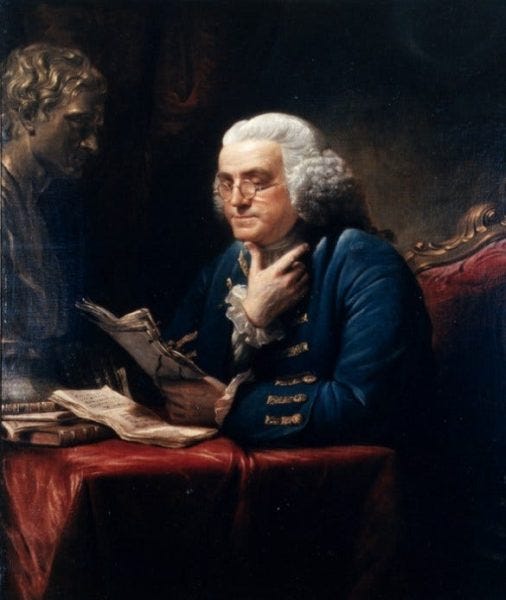
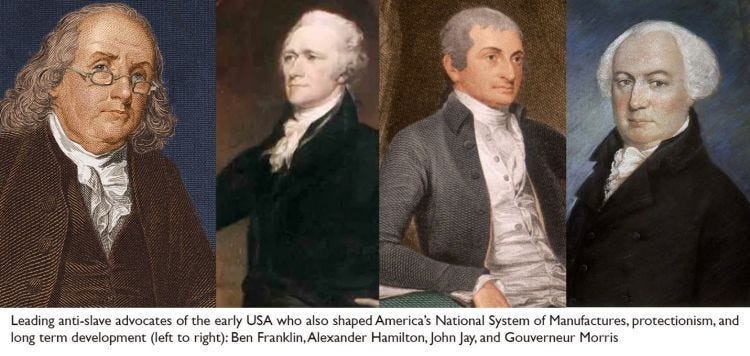
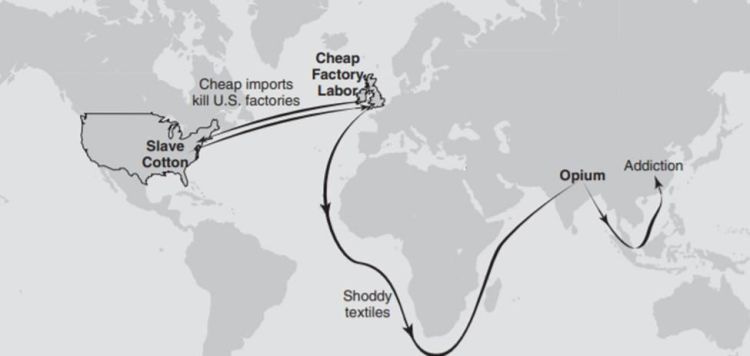
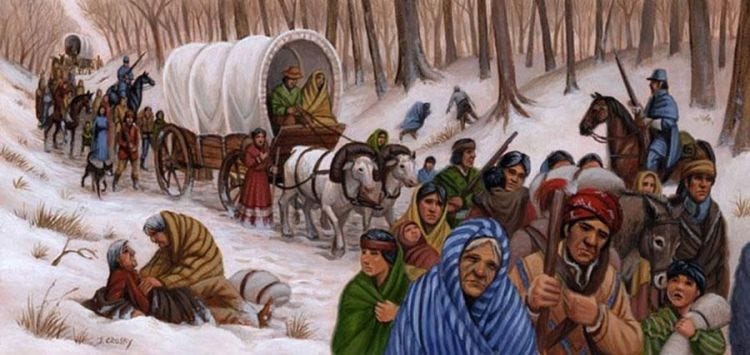
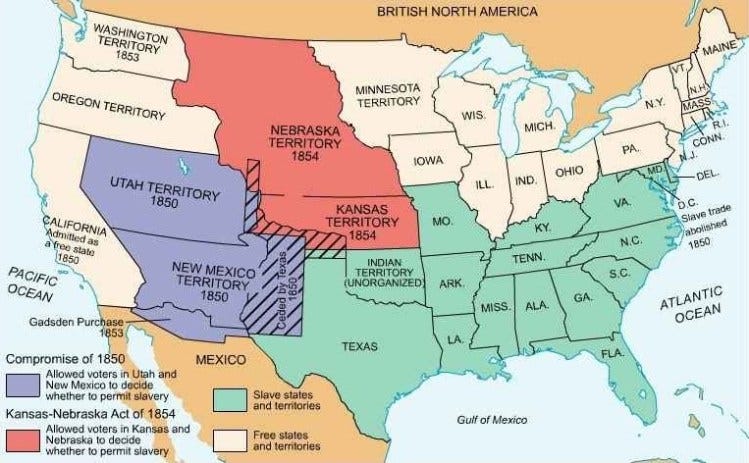



If Oswald Spengler is right ("Decline of the West"), Western Civilization cannot be saved, any more than ancient civilizations were not saved. Decline is inevitable. Best we can do is try to create something new and better after the civilization is "burnt to a crisp."
you need to read up on the Frankfurt School. Which has almost nothing to do with what you claim it does. Remove that weird bit of revisionism and its a fascinating take. (marxist/freudian is actually not perverse at all...but never mind, lets stick with adorno et al......). So, critical theory is not synonymous with the Frankfurt School. Second, the 1619 project had nothing to do with the frankfurters (sic). The pernicious influence of, particularly, french post structuralism did indeed replace more materialist analysis (some marxist) with drivel...but again, thats not the frankfurters. And even some of those frog thinkers were rather good. The problem is Academia in the West, the growing class polarisation and cultural inequality and take over by a narrow (roughly) 30% of urban college (badly) educated white people. Read russell jacoby's book on *Diversity*. The western academia was being depoliticised, and overrun with that form of liberal-think one sees in legacy media today. I think this is an important topic. But the reactionary framing of ....targeting the frankfurt school-.-- is unfortunate. This comes perilously close to 'angry white guy' stuff that is sadly everywhere today. Also the US was mostly built by slaves.https://john-steppling.com/